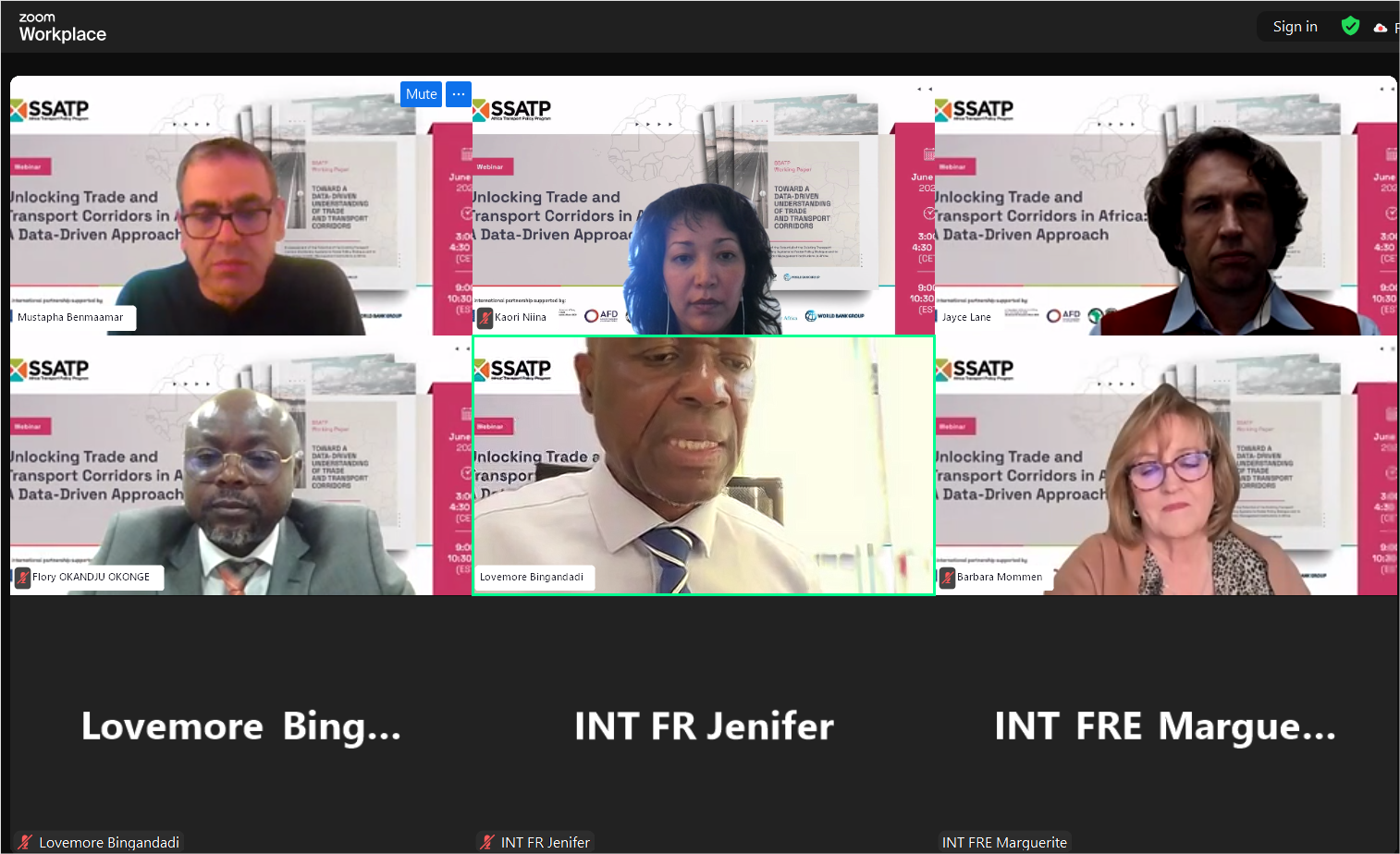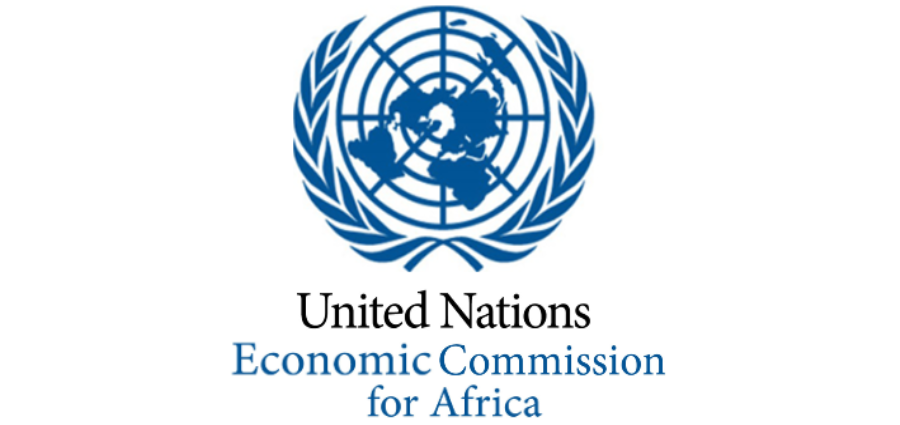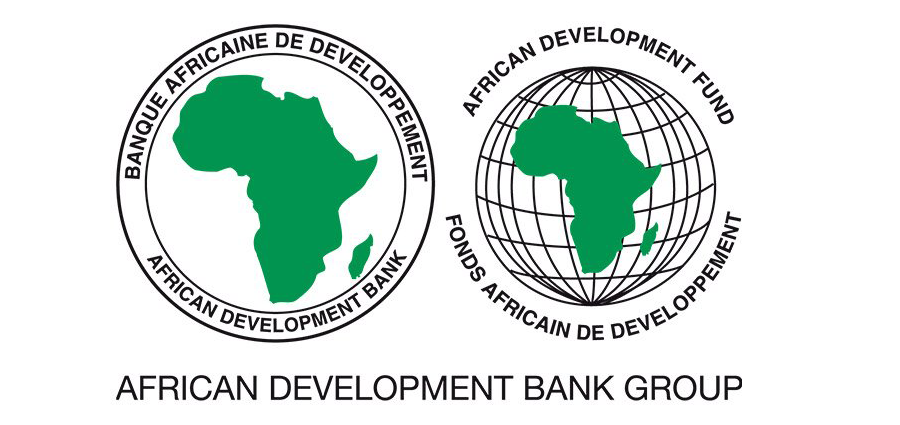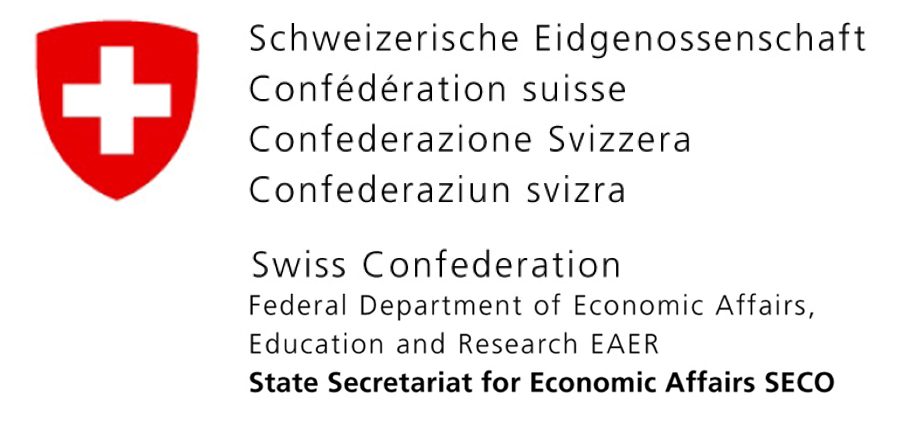Main Takeaways from the SSATP Webinar on Unlocking Trade & Transport Corridors in Africa
Despite their importance, trade and transport corridors in Africa face numerous challenges that hinder their efficiency and effectiveness. SSATP's Fourth Development Plan (2022-2026) aims to address these challenges by leveraging digital solutions and data-driven decision-making to enhance performance, regional connectivity, and economic integration.
On June 25, 2024, SSATP hosted a webinar to explore the transformative potential of data-driven solutions for enhancing trade and transport corridors across Africa. Chaired by Mustapha Benmaamar, SSATP Program Manager, the event brought together over 85 participants to discuss the findings of the latest SSATP working paper, Toward a Data-Driven Understanding of Trade and Transport Corridors. The main takeaways from the webinar are as follows:
- Understanding the Importance of Data: One of the primary takeaways from the webinar was the critical role that reliable data plays in shaping effective transport policies and regulations. Barbara Mommen, the main author of the SSATP working paper and former CEO of Maputo Corridor Logistics Initiative (MCLI), provided an in-depth overview of the SSATP working paper, comparing the capabilities of three Corridor Performance Monitoring Systems (CPMS): Corridor Transport Observatories (CTOs), the Corridor Trip Monitoring System (CTMS), and the Logistics Monitoring System (LMS). She emphasized that data is essential for monitoring corridor performance and identifying bottlenecks. The integration of data analytics into corridor management can lead to more informed decision-making, ultimately enhancing the efficiency of transport corridors. The study findings also highlighted the importance of putting in place strong institutions as place holders to drive CPMS, the advantages of using CPMS with real-to-near-time-data, and the need to monetize the CPMS services to garner their sustainability.
- Digital Transformation of Data Collection: Adv. Flory Okandju Okonge, Executive Secretary of the Central Corridor Transit Transport Facilitation Agency (CCTTFA), discussed the digital transformation of data collection methods in the Central Corridor. Supported by SSATP, the transition from paper-based to digital data collection significantly improved the accuracy and timeliness of their data collection efforts. This shift now allows for the real-time monitoring of key performance indicators such as cargo volume, transit times, and greenhouse gas emissions, enabling more effective interventions and policy adjustments.
- Leveraging Real-Time Data for Corridor Management: Jayce Lane, Managing Director of Crickmay & Associates, showcased the Logistics Monitoring System (LMS) as a powerful example of how real-time data can be leveraged for corridor management. By integrating vehicle monitoring, port performance, and vessel tracking, the LMS provides stakeholders with actionable insights. This real-time information is crucial for optimizing transport flows, reducing delays, and improving overall corridor performance.
- Integrating Systems for Enhanced Functionality: Lovemore Bingandadi an expert consultant from the Southern African Development Community (SADC) discussed the Corridor Trip Monitoring System (CTMS), which tracks vehicle routes and ensures regulatory compliance. He emphasized ongoing efforts to integrate CTMS with customs and immigration systems, highlighting the importance of a harmonized regulatory framework. Such integration enhances the functionality and sustainability of corridor monitoring systems, facilitating smoother and more efficient operations.
- The Need for Robust Institutional Frameworks: A recurring theme during the webinar was the necessity of robust institutional frameworks for data sharing and policy enforcement. For instance, only three out of the nine SADC corridors have a Corridor Management Institution (CMI). The panelists underscored that having strong institutions in place is essential for the effective implementation and operation of corridor monitoring systems. This includes ensuring that data is shared seamlessly among various stakeholders, which is vital for maintaining corridor efficiency and addressing issues promptly.
Looking ahead, panelists called for the need to address the challenge of data sharing issues to drive better planning, coordination, and efficiency in transport corridors, and stressed the importance of developing a harmonized continental-level system to facilitate smoother operations and enhance regional connectivity.
By embracing digital technologies and fostering regional collaboration, Africa can significantly improve its trade and transport infrastructure, promoting economic growth and integration across the continent.
Webinar Materials:
- Webinar recording
- Agenda & Speaker Bios
- SSATP working paper: Toward a Data-Driven Understanding of Trade and Transport Corridors
Presentations:
- Barbara Mommen – Findings of the SSATP Working Paper
- Flory Okandju Okonge – Overview of the Corridor Transport Observatory
- Jayce Lane – Overview of the Logistics Monitoring System
- Lovemore Bingandadi – Status of the development and deployment of the Corridor Trip Monitoring System








